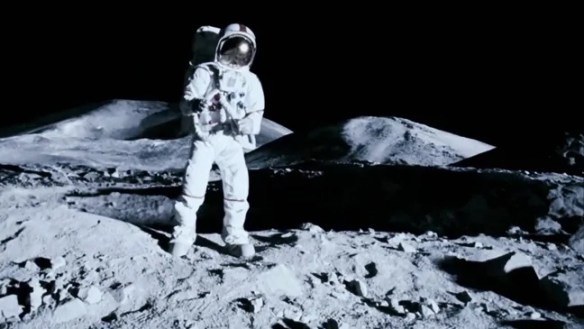Hello folks, and welcome back to Wrong Every Time. I’m pretty sure this goddamn snow-stuffed winter has inflicted me with a recent head cold, so please appreciate my suffering as I tirelessly work to supply you good people with more of my meandering opinions. This week saw me reaching the end of Black Myth: Wukong, which I frankly feel a little ashamed about even finishing; the game is a fundamentally misguided and altogether miserable experience, and I only really finished it because I still feel some regret about dropping Lies of P. I know the only way a bad game can actually get one over on you is by tempting you to play it longer than you’re having fun, but I nonetheless still possess a touch of senseless “gamer pride,” which compelled me to beat the endlessly aggravating, fundamentally anti-player experience that was Wukong. Fortunately, my week was otherwise furnished with a generous scattering of film features, so let us turn our minds to brighter topics as we burn down the Week in Review!
First up this week was Apollo 18, a found footage horror film about the final, canceled Apollo mission. The film posits that the planned landing was actually revived as a top-secret Department of Defense mission, wherein three astronauts were tasked with bringing a mysterious payload to the lunar surface. As you might expect, the mission goes a bit less than swimmingly, with the discovery of a wrecked Russian craft preceding an attack by something lurking on the lunar surface.
So yes, this is indeed “Moon’s Haunted: The Film,” a premise which led me to ultimately feel pleasantly surprised by the feature’s dramatic restraint. As it turns out, you don’t need much supernatural interference to make a lunar landing a tense prospect: space sucks, it wants us dead, and every step we take on a foreign body is essentially a challenge directed at all the forces of nature, daring them to breach the thin protection provided by our suits and science.
Apollo 18’s convincing array of variably compromised footage and strong lead performances ensure it is grounded in tangible threats and human stakes before anything spooky happens. I found myself rooting for these eager astronauts, which made its second half’s slow burn of not-quite-right discoveries and escalating mechanical failures feel both claustrophobic and genuinely tragic. If you’re looking for full-on scifi horror, you’ll likely be disappointed by Apollo 18’s measured pacing and lack of overt beasties. But as far as films that capture the inherent terror of space go, I’d say Apollo 18 is a clear success.
We then checked out Fist of Legend, a Jet Li-starring remake of Bruce Lee’s original Fist of Fury. Li stars as Chen Zhen, a Chinese martial artist studying at Kyoto University when he learns his master in Shanghai was killed in a duel. Returning home, he challenges the man who killed his master, and upon his victory concludes that some manner of foul play was clearly involved in his master’s death. However, Chen’s investigations are harried both by the jealousy of his master’s son Ting’en and the machinations of the Imperial Japanese Army, sending him on a course that will end in deadly confrontation with the sinister General Fujita.
Fist of Legend is simply delightful on the whole, boasting a top caliber martial arts pedigree and a tense narrative that feels a bit like a time capsule, harkening back to both Bruce Lee’s original and the overarching tone of peak Shaw Brothers martial arts cinema. In contrast with Lee’s ever-simmering fury, Jet Li’s stalwart presence lends a sense of peace and control to the center of a narrative maelstrom, his defusing of international tensions seemingly as deft as his strikes and footwork.
The film is largely constructed as a series of conversations carried out through battle. Chen’s initial character is established through his careful disarming of a bigoted Japanese school, wherein he demonstrates his skill for defeating enemies without losing his cool, and thereby frequently forging friendships through battle. Chen’s duel with the man who defeated his master is similarly controlled, a series of tests of physical agility that he sets before his opponent to divine his true skill level. And his duel with Ting’en might be best of all, a roiling argument that sparks backwards and forth, as Chen is forced to dismantle and shame a man he considers a close friend. If you want a clear example of how martial arts can serve as drama and even dialogue, Fist of Legend is a marvelous example of the form, and a highly entertaining film from start to finish.
My housemate’s trawling of Netflix’s darker reaches next settled us on Shrapnel, an eminently skippable riff on the general Taken shell. The plot is as simple as can be: a former marine’s daughter is abducted by a Mexican cartel, forcing him to shoot anything that moves until he gets her back. Seriously, the vast majority of this film is composed of endless shootouts between grim-faced marines and anonymous villains, as our personality-bereft protagonist shoots his way out of his house, past the border, and through the endless waves of goons separating him from his prize.
The film possesses no real sense of atmosphere or suspense; the cinematography is dramatically inert, and our protagonist is both too flavorless of a person and too competent of a killing machine to provoke any sort of emotional reaction. It’s just gunfight after gunfight for over an hour, as our ostensible heroes shoot their way past fresh tiers of incompetent, interchangeable enemies. Taken itself isn’t exactly the height of cinematic drama, but it at least had that one speech and a couple well-choreographed encounters; Shrapnel by contrast is entirely flavorless, a rote recitation of “and then the marine shot another guy” repeated for ninety minutes.
Last up for the week was The House with Laughing Windows, a ‘76 giallo feature co-written and directed by Pupi Avati. Lino Capolicchio stars as Stefano, an artist who has been hired to restore a fresco of Saint Sebastian in the chapel of a sleepy Italian village. After taking up residence in the house that once belonged to the fresco’s painter, Stefano soon learns there is a dark history to this place, and that the “Painter of Agony” whose work he is restoring likely drew inspiration from his family’s murderous inclinations.
The House with Laughing Windows is part Inferno, part Messiah of Evil, and all delicious, handsomely furnished giallo goodness. The film is brimming with the kind of alienating, subtly malevolent layouts that mark Argento’s best work; Stefano is frequently trapped within stark shadows and abrasive colors, navigating an unwelcoming physical labyrinth that he might untangle the mystery of his predecessor’s muse. And the external shots are just as carefully chosen and emotionally charged as the overt sets; Avati sets his drama in a tangibly fatigued ghost town, full of grand yet crumbling archways, evocatively painted ruins, and endless, anonymous fields of marsh grasses.
And then there are the paintings! Just like Messiah of Evil, The House with Laughing Windows benefits tremendously from its array of paintings and murals, each of which evokes both a clinical disinterest in human emotion and an unnerving fascination with the contortions of a body on death’s door. There is a luscious haze of paranoia and suspicion cloaking the film’s proceedings, a murmur of collective guilt borne of post-war sobriety, and a promise of violent intent that seems to seep from the very walls of Stefano’s accommodations. A top tier giallo feature in all regards, and an immediate personal favorite.




